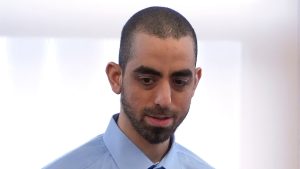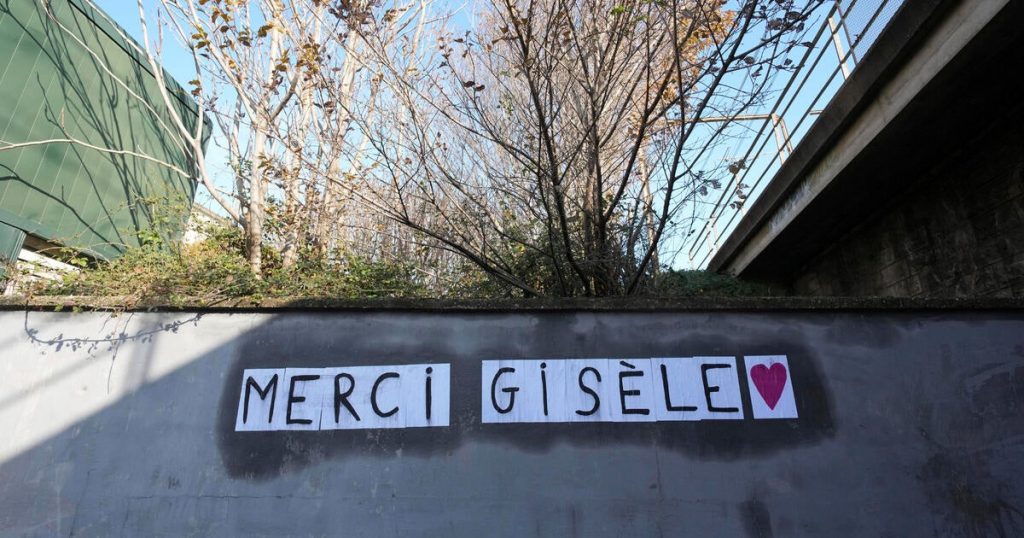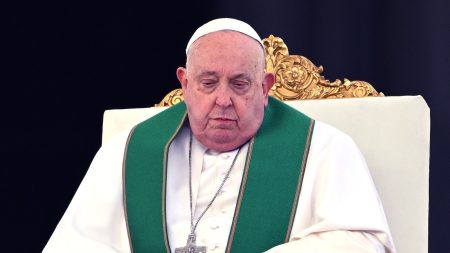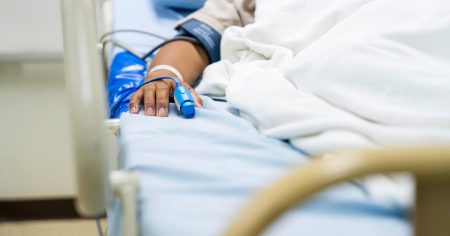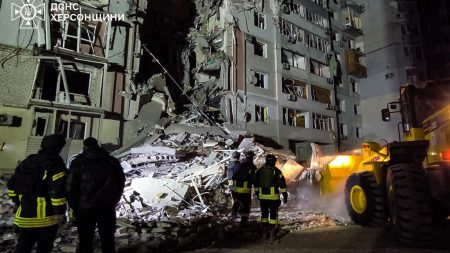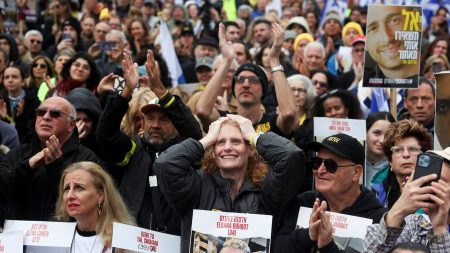France’s Landmark Child Sex Abuse Trial: A Step Toward Justice and Healing
Overview of the Trial and Its Significance
France is on the brink of what may be its most significant child sex abuse trial to date, with former surgeon Joël Le Scouarnec standing accused of raping or sexually abusing 299 individuals, mostly child patients. While Le Scouarnec is the sole defendant, activists and advocates hope this trial will serve as a catalyst for other victims to come forward and shed light on the pervasive issue of child sexual abuse in France. The trial, set to begin in October 2023 and expected to last four months, will take place in Vannes, a city in the Brittany region of northwestern France. This case has garnered national attention not only due to the sheer number of alleged victims but also because it highlights the systemic failures that allowed such abuse to go unchecked for decades.
Central to the case are Le Scouarnec’s detailed notebooks, where he meticulously documented his acts of sexual violence over the years. These notebooks, along with other evidence seized from his home, including over 300,000 photos and 650 video files containing pedophilic and other disturbing content, paint a chilling picture of a life spent perpetrating abuse. Le Scouarnec, now 74, has not denied the charges, though he claims to have no memory of all the alleged incidents. This trial represents a crucial moment for France, as it seeks to address the scourge of sexual violence against children and challenge the societal taboos that have long protected abusers.
The Trial and Its Far-Reaching Implications
The trial of Joël Le Scouarnec is not just about bringing one individual to justice; it is also about confronting the broader cultural and systemic issues that have allowed such abuse to thrive. For decades, Le Scouarnec abused his position of trust as a surgeon to prey on vulnerable children, often under the guise of medical procedures. His victims, many of whom were unconscious during the assaults, only began to piece together the truth years later. The trial represents a turning point for France, as it seeks to create a society where victims of sexual abuse feel empowered to speak out and where perpetrators are held accountable.
Activists and organizations advocating for child protection and women’s rights see this trial as an opportunity to shift the narrative around sexual abuse. They emphasize that the shame and guilt associated with such crimes should no longer fall on the victims but on the perpetrators. In a statement, these groups expressed their hope that the trial would mark a significant step forward in creating a justice system that listens to and protects victims while ensuring that abusers face the full force of the law. The case of Joël Le Scouarnec serves as a stark reminder of the need for systemic change and greater accountability within institutions that have historically failed to protect vulnerable individuals.
The Chilling Evidence and Le Scouarnec’s History of Abuse
The evidence against Le Scouarnec is nothing short of horrifying. His notebooks, which detail his sexual assaults with unsettling precision, provide a grim insight into the mind of a predator who meticulously planned and documented his crimes. These records, along with the vast collection of explicit and disturbing material found in his possession, leave little doubt about the severity of his actions. Le Scouarnec’s abuse spans decades, with the earliest documented cases dating back to the mid-1980s. However, due to the statute of limitations, some of these earlier crimes cannot be prosecuted, leaving many victims without the closure they deserve.
The case against Le Scouarnec first came to light in 2017 when a 6-year-old neighbor accused him of inappropriate behavior. This initial complaint led to a search of his home, where investigators uncovered the trove of incriminating evidence. In 2020, Le Scouarnec was sentenced to 15 years in prison for the rape and sexual assault of four children, including two nieces and a young patient. Despite this conviction, he was allowed to continue practicing medicine, a decision that has raised serious questions about the failures of the medical and legal systems to protect children from known predators.
The Emotional Toll on Victims and the Power of Their Voices
For many of Le Scouarnec’s victims, the trial represents a chance to finally confront the man who deprived them of their childhood and left them with lifelong scars. Among these victims is Amélie Lévêque, who was just 9 years old when she was abused by Le Scouarnec during a hospital stay in 1991. Decades later, she would discover that her name appeared in his notebooks, a revelation that both validated her experiences and thrust her into a deep emotional crisis. "I fell into a deep depression," she recalled. "My family tried to help, but I felt completely alone." Her story is not unique; many of Le Scouarnec’s victims have struggled with feelings of isolation, shame, and confusion, unsure of how to process the trauma they endured.
The emotional toll on the victims is immeasurable, yet their courage in coming forward and sharing their stories is a testament to the resilience of the human spirit. As the trial progresses, these survivors will have the opportunity to confront their abuser and seek justice, a process that is both deeply challenging and potentially transformative. Their voices, though shaken by the horrors of the past, are now being heard, and their stories are helping to shed light on the pervasive issue of child sexual abuse in France.
The Need for Systemic Change and Accountability
The case of Joël Le Scouarnec has also brought into sharp focus the systemic failures that allowed his abuse to continue unchecked for so long. Despite being convicted in 2005 for possessing and importing child pornography, Le Scouarnec was able to secure a position as a hospital practitioner just a year later. This glaring oversight highlights the inadequate measures in place to protect children from known predators. The medical community’s failure to act swiftly and decisively in response to Le Scouarnec’s criminal history is a sobering reminder of the need for greater accountability within institutions that are entrusted with the care and protection of vulnerable populations.
Child protection groups and activists are using this trial as an opportunity to advocate for systemic change. They are calling for stricter laws and more robust mechanisms for identifying and reporting abuse, as well as increased support for victims of sexual violence. The Independent Commission on Incest and Sexual Violence against Children has urged a "major cultural change," emphasizing that the silence of witnesses and the failure of institutions to act have enabled abusers like Le Scouarnec to continue their crimes unchecked. The commission’s statement underscores the importance of creating a society where those in positions of power take responsibility for protecting children and holding perpetrators accountable.
Conclusion: A New Era of Justice and Accountability
The trial of Joël Le Scouarnec marks a potential turning point in France’s fight against child sexual abuse. While the case is undeniably tragic, it also presents an opportunity for healing, justice, and systemic change. For the victims, this trial is a chance to confront their abuser and seek closure after years of silence and suffering. For society at large, it serves as a stark reminder of the need to confront the taboos and systemic failures that have allowed such abuse to thrive. As France moves forward, the hope is that this trial will pave the way for a new era of accountability, where the voices of victims are heard and valued, and where those who perpetrate such heinous crimes are brought to justice.
Ultimately, the case of Joël Le Scouarnec is not just about one man’s crimes; it is about creating a society that protects its most vulnerable members and upholds the principles of justice and accountability. As the trial unfolds, the world will be watching, hopeful that France will emerge from this dark chapter with a renewed commitment to fighting child sexual abuse and supporting those who have been affected by it.
